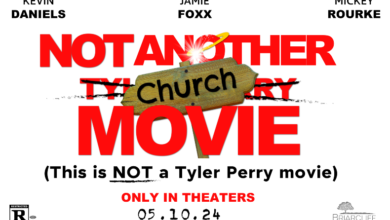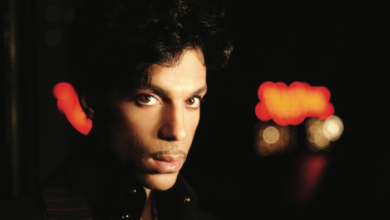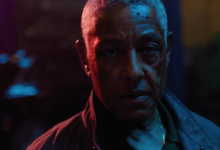UB Full [Access] “Tyler Perry’s A Madea Christmas” In Theaters December 13th
UB Full [Access] “Tyler Perry’s A Madea Christmas”
In Theaters December 13th!
“I’ve always wanted to do a holiday movie!” exclaims screenwriter/producer/director/star Tyler Perry. “I love Christmas and the spirit of the holidays. I love the family gatherings. And I think Madea paired with the holidays spells just the right kind of trouble. Cause there’s nothing holy about Madea.”
Loosely based on a stage play Perry wrote, Tyler Perry’s A Madea Christmas heralds a fresh turn in the Tyler Perry/Madea franchise: a movie that blends Perry’s distinctive blend of humor and uplift with the festive, soulful spirit of the holidays. “This movie is a big comedy for the whole family, and it really captures that heartfelt feeling of family coming together – and also the comedy and chaos – that Christmas is all about,” says producer Matt Moore.
A Madea Christmas begins with Madea accompanying her niece, Eileen, to pay a surprise visit to Eileen’s daughter, Lacy, who has mysteriously informed her she’s not coming home for the holidays. Lacy lives on a farm in a small town called Buck Tussel, and she’s still avoiding telling her judgmental mother that she’s gotten married to Connor, a white boy she met in college, for fear of disappointing her. So when Eileen and Madea arrive at the farm, Lacy panics and claims Connor is just a farmhand, a lie that only gets more difficult to sustain when Connor’s Southern hillbilly parents arrive for a holiday visit of their own. “There’s no Silent Night for this family,” laughs Perry.
A hilarious culture clash comedy ensues, with Madea reaching new comic heights in a series of unforgettable set pieces: dressed as a department store Mrs. Claus (in what Perry calls, “The biggest, reddest-ass dress I’d ever seen in my life!”), waxing on about how to milk a bull or delivering her off-kilter advice and irreverent one-liners to anyone within punching distance. “Madea does Christmas like only Madea can,” says Perry. “She comes into the story loud and big, but she also comes with a lot of wisdom and a lot of history. She’s the one who calls out the secrets. Nothing gets by her.”
While Madea is all bluster and attitude, the film’s core drama occurs between Eileen, played by Anna Maria Horsford (NBC’s “Amen,” the WB’s “The Wayans Bros.” and BET’s “Reed Between The Lines”), and Lacy, played by Tika Sumpter (“One Life to Live,” “Gossip Girl,” and OWN’s “The Haves and The Have Nots”). These two characters represent a shifting generational divide with strongly differing values and views of race relations.
“Eileen is an old school mother,” explains Horsford. “She’s devoted her entire life to Lacy and has really strong opinions about how her daughter should live. She doesn’t understand because Lacy’s smart and beautiful and has a master’s degree but she’s choosing to live in a small town and work as an elementary school teacher.”
Eileen also remembers too clearly the racial struggles of her childhood and still has issues with interracial marriage. “Even though the world is different today, in 2013, she remembers what it was like,” says Horsford. “You know, especially in African American homes, we don’t share all of the trauma with our children. We want to free them from the racism that many of us knew, let them go into a better, freer world. But for Eileen that backfires, because she never thought Lacy would go so far away.”
“Anna is just great as Eileen,” avows co-star Kathy Najimy. “There are some big characters going on in this movie, and Anna played Eileen really real. It was a lovely ingredient to the Madea soup.”
While Eileen would like to see her daughter rise in socio-economic standing, Lacy is more interested in quality of life and doing good in her community. Says Sumpter, “She falls in love with Connor, this guy in college who happens to be white, and follows him from the big city to this small town in Alabama where he’s trying to save his family’s farm from bankruptcy. So Lacy follows him for love and ends up teaching in this great school called, The McCoy School.”
At the school, Lacy uses her education and street smarts to try to solve a budget crisis that threatens to sink the entire town of Buck Tussel. “Lacy’s a fighter,” continues Sumpter. “She’s from the city so she knows how to hustle a bit. She’s a kind-hearted, good person – she wants good for all – but in her trying to do good sometimes she says the wrong things and spreads a few small lies that plant the seeds of disaster.”
Lacy’s crucial lie, that her husband Connor is just a farmhand, leads to comic chaos when Connor’s parents arrive and have to share close quarters with Eileen and Madea. Connor, played by Eric Lively (American Pie, Butterfly Effect 2), finds himself caught in the middle. “He has to play along, and it’s pretty tough for him,” admits Lively. “Over the course of the movie he has to come out of his shell, feel confident in his role running this farm, and also bring stability amongst all these crazy characters.”
Two of those “crazy” characters are Connor’s parents, Bud and Kim, who are brought to sparkling life by seasoned comedians Larry the Cable Guy (Larry the Cable Guy: Health Inspector, “Bounty Hunters”) and Kathy Najimy (Sister Act, “Veronica’s Closet,” “King of the Hill”). Bud and Kim are simple folk from the South who are far less sophisticated than Eileen or Madea; but Perry, in a departure from the usual screen stereotypes of Southern hicks, makes Bud and Kim completely accepting of Conner’s marriage to an African-American woman. “It’s really powerful and refreshing because you don’t expect that kind of acceptance to come from the ‘country people’,” says Najimy.
“Bud isn’t a racist character,” explains Larry the Cable Guy. “He’s just always trying to be funny and doesn’t always say the appropriate thing. He loves everybody. He doesn’t have a bone to pick with anybody. He’s just enjoying life and speaking his mind.”
Believing they’re arriving for a casual Christmas celebration, Bud and Kim are forced to play along with the lie that Connor is a farmhand, taking on the roles of farmhands as well. “It becomes very tense and we just don’t understand,” says Najimy. “We spend the whole time with confused faces thinking, ‘Why can’t we just be, you know, having a big three bean salad right now.’”
While preparing for their performances, Larry and Najimy agreed to portray Bud and Kim, who are constantly bickering, as still very much in love. “Kathy said she was tired of seeing couples who don’t love each other and complain about each other on screen all the time. Because that’s not how it is, always,” says Larry. “So we agreed to love the hell out of each other. ‘I can do jokes about you and you just laugh it off and you do jokes about me and I laugh it off.’ And it made everything funnier. Kim thinks Bud’s the funniest thing on two legs and just loves him and thinks he’s sexy and great.”
“Larry and Kathy just hit it off right away,” reports producer Matt Moore. “They’re really naturally funny and together the chemistry is amazing. Every scene they’re in is full of this fun bickering like they’ve known each other for 20 years, but there’s a lot of love between them. It’s really heartfelt and fun and they just light up the screen.” Adds Larry, “Basically, Kathy’s just as goofy as I am. So it was perfect.”
The comedic pitch only rose higher when Larry and Najimy were in scenes with Perry as Madea, who often steered them away from the script into free improvisation. Recalls Larry, “The first day I was like, ‘Man this is kind of – he’s not sticking to any of his lines! Does he not know the lines?’ But then I got it and it was a blast. I love going in and just adlibbing, just throwing stuff out, making the other actor laugh. And you act better when you’re not worried about what your next line is going to be and just let yourself go and enjoy the moment.”
“It was a game of who could top the joke, just like being in seventh grade,” says Najimy. “Some of those scenes lasted for so long because I would say something to him and Madea would say something back and I would say something back then he would say something back and I thought, ‘Alright, I’ll keep going, dude. I will. I’m a night owl. I will do this as long as you want,’ ”
“It was nonstop fun,” laughs Perry. “The adlibs – some of them couldn’t make it because the movie would have been NC-17 – but it was priceless. I love the adlibs because art is a living thing and the moment changes all the time. When there’s something that works and it’s hysterical, I leave it in. They’re a lot of those moments. This movie is so funny I laugh just thinking about it.”
The spirit of improvisation often overtook the entire cast, and many takes were interrupted by outbursts of uncontrollable laughter. Maintaining focus was particularly challenging for Sumpter, who often had to navigate more dramatic material amidst the comedy. “There were a few scenes where Lacy has to be upset and everyone else, Anna Maria, Larry, Madea, everyone’s just letting loose and I had to be the straight arrow,” she says. “A couple of times I just died and they had to stop. I couldn’t stop laughing.”
Adding to Lacy’s predicament in the film is the arrival of Oliver, an ex-boyfriend and powerful ad executive who holds the key to saving Buck Tussel’s annual Christmas Jubilee. He’s also dead-set on trying to convince Lacy to give their relationship another try. “Eileen, Lacy’s mother, has always really liked me, and she actually pumps me up a bit saying Lacy talked about me so much,” explains actor and former Oakland Raiders running back, JR Lemon, who plays Oliver. “So it triggers something in me, and I start being really forward with Lacy. It adds even more drama to her situation.”
A Madea Christmas also tells the story of Amber and Tanner McCoy, a poor young farming couple whose young son, Bailey, is an exceptional student in Lacy’s classroom. The McCoys, like many of the citizens of Buck Tussel, are up in arms over the town’s announcement that there is not enough money in the budget to produce the Christmas Jubilee, an annual festival that’s crucial to the townspeople’s economic survival.
Actress Alicia Witt plays Amber, who’s trying to maintain her integrity while her husband, Tanner (played by Chad Michael Murray), succumbs to the financial pressure he’s under. Says Witt, “Amber has a really big heart. She’s a good girl, but she’s challenged by the fact that her husband is starting to get lured in by some darker elements due to the fact that money has not been coming in. She’s riding a fine line between really putting her foot down and saying things aren’t okay to being scared that he could snap.”
“Tanner starts out very dark and very rugged and believes in his way, which is kind of rough and tumble,” explains Chad Michael Murray. “But as the story progresses we see him really grow and become the man he’s always been.”
Production on A Madea Christmas took place in and around Atlanta in January, 2013. The filmmaking team shot exteriors, in particular the film’s climactic Christmas Jubilee sequence, in a small town called McDonough. “It was fantastic,” says Perry. “The people of McDonough were so excited to have us there, they kept up all of their Christmas lights and decorations so the town was all dressed and ready for the Christmas Jubilee and just about the entire town showed up as extras, too.”
Much of the production’s resources were put towards creating an idyllic holiday scene in the town square, replete with carolers, food stands and countless Christmas lights. “They created this huge event,” says Eric Lively. “All the people of McDonough were lining the streets and it was really exciting. And when the choir sang and Bailey, the little boy in the movie, started his solo, it was really magical. All of us were really touched to be there.”
“I love Christmas,” says Kathy Najimy. “I never get enough of it. I love the lights. I love the music. I love the shopping and I gotta say the Jubilee just sent me through the roof. There were people selling gingerbread men and cotton candy and candy apples and I was going up and saying, ‘Can I buy one of the…’ And the crew was like, ‘Kathy, they’re props. Hands off the peppermint candies.’”
As usual, Perry managed to direct the production in full Madea regalia, always at-the-ready to jump into character and deliver a stream of inspired Madea-isms in front of the camera. “When Tyler would direct me dressed as Madea, I couldn’t look him in the face. It was just too weird,” laughs Chad Michael Murray. “I said, ‘I can’t listen to you. I can’t take notes.’ So whenever we had a conversation we’d just talk to each other’s cheeks. It was our thing.”
“He has so much on the mind – the camera shots, the schedule – but once he becomes the character it’s 100% focused,” reports Anna Maria Horsford. “So once the scene started, it wasn’t difficult at all.”
“He works differently than any other director I’ve ever worked with,” adds Najimy. “He knows exactly what the shot is because in his head there is no extra fat in the scene. He just gets right into it. And to watch one person really write, direct, act – and to be directed by him and to get the feedback – I didn’t expect to be so inspired. I really didn’t.”
For his part, Tyler Perry is grateful to have assembled a talented cast he could trust wholeheartedly, and he hopes that the community spirit fostered on set shines through the film itself. “All of us coming together was just, it was so wonderful,” he says. “We had an opportunity to not only laugh and have fun and go to work every day, but to realize that when people see this film, they might just have the same experience.”
“This is the kind of fun, family movie that people look for during the holidays,” says producer Matt Moore. “They’re going to want to go laugh and have fun and really celebrate Christmas, but do it in a way that they’ve never done before.”
“There’s a lot of truth to the things these characters are dealing with,” adds Najimy. “Philosophically, A Madea Christmas is about unity and inclusiveness and diversity.”
And that, says Perry, is what the holidays are all about. “The most important lesson, to me, is that we are all the same no matter what race, no matter where we come from,” says Perry. “We’re all the same people. If there’s one thing to take away from this movie it’s ‘Live and let live.’”










UB Full [Access] “Tyler Perry’s A Madea Christmas” In Theaters December 13th http://goo.gl/fb/A3nzj
I think I want to see this now